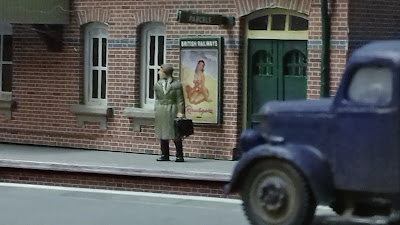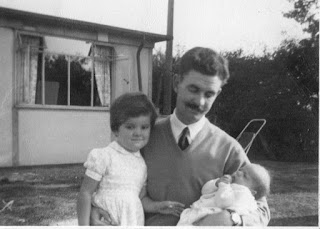Freddie was with the boy for only a very short time on this earth, but he watched him from the shadows for more than eighty-five years.
In those misty, forgotten days just before the 1939 war, Freddie would follow the little boy up the dark, narrow stairs to his bedroom, a journey made by candlelight; there was no electricity in the old Suffolk farmhouse. Freddie sat beside his bed during childhood illnesses, walked with him down country lanes, and silently persuaded him against the more outlandish boyhood pranks that flitted through his young mind.
He wept alongside him when his beloved cousin was killed in Northern France in 1940; he hoped the boy could feel his arm about his shoulders.
Freddie watched him grow into a solemn, hardworking lad who became head boy at his senior school, silently congratulated him when he landed his first job, and was delighted when he met the outgoing, affectionate woman he would marry. She smiled a great deal; everyone agreed she brought out the best in him.

He
watched the boy become a man, make his way in the world, gain a fine
reputation amongst peers and superiors, always respecting the traditions
and values of his upbringing. Most of all, though, Freddie was glad he
and his wife had a happy marriage. Everyone liked him and enjoyed his
company; that was more important to Freddie than anything.
The couple had three children. Freddie felt great pride when they brought their baby son home from the hospital to complete their family; he stood in the quiet shade of the lilac and laburnum trees, smiling as the boy took photos of his wife holding their new baby on that warm afternoon in early summer, with their daughters standing on either side.

He kept a watchful eye on man and wife as they made the most of their leisurely autumn years by travelling abroad. Later, Freddie shared the boy's pain during the difficult time when his wife's mind began to falter, and his sense of loss when she was moved into residential care. He knew, though, that he would receive great comfort from his friends and family, for the boy was a wonderful father, uncle and friend who never failed to reach out a helping hand to those in need in his small village community. His children said he had a more active social life than they did. Freddie was with the boy and his children all through those last five years, and was warmed by all the happy moments they shared.
He knew when time was running out; he gently pushed the boy to visit the places of his youth with his son and older daughter, and the home of the younger daughter who lived many miles away. To do all he would want to do for one last time. The boy was becoming frail, but Freddie was determined he should not suffer, or become dependent on others; he would have hated that.
The end came out of the blue one ordinary Thursday afternoon, a great shock to all who loved him, though they derived no small comfort from the knowledge that he had suffered no pain. The son talked to him at his hospital bedside and Freddie listened, too, so moved by his words; he knew his boy, though unconscious, could hear them, too.

Freddie was with them all on the beautiful, golden autumn day when they laid the boy to rest. The son and the favourite nephew helped bear the coffin into the ancient village church, and Freddie walked beside the two daughters as they followed behind, arm in arm, the younger woman struggling to hold back tears (she cried easily, like her mother), the elder one bearing her grief with stoicism, as her father would.
The congregation was one of the largest the vicar had seen at that church, and her address honoured her friend, as did the tribute and bible reading from his children. At the graveside the men with medals saluted him; once a sapper, always a sapper.
The family and friends moved off, and Freddie waited. He stood with the boy's aunt and uncle who had cared for him in childhood, with his beloved cousin who died in battle over seventy years before, and his brothers and sisters. The boy walked towards them; he was smiling, he looked younger, and though he still used his walking stick he no longer seemed to need it.
Freddie held out his arms.
"Welcome home, son; it's been a long time."
My grandfather, Frederick, who died around 1931
In memory of my dear father, Douglas Gibbs.
25 June 1929 ~ 28 September 2017


















































